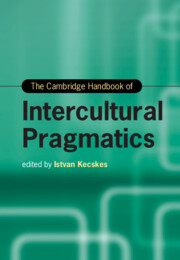Book contents
- The Cambridge Handbook of Intercultural Pragmatics
- Cambridge Handbooks in Language and Linguistics
- The Cambridge Handbook of Intercultural Pragmatics
- Copyright page
- Contents
- Figures
- Tables
- Acknowledgment
- Contributors
- Introduction The Rise of Intercultural Pragmatics
- Part I Theoretical Foundation
- Part II Key Issues in Intercultural Pragmatics Research
- Part III Interface of Intercultural Pragmatics and Related Disciplines
- Part IV Intercultural Pragmatics in Different Types of Communication
- Part V Language Learning
- 28 Pragmatic Competence
- 29 Pragmatic Awareness in Intercultural Language Learning
- 30 Interculturality and the Study Abroad Experience: Pragmatic and Sociolinguistic Development
- 31 Intercultural Mediation in Language Learning
- 32 Interaction in the Multilingual Classroom
- Index
- References
30 - Interculturality and the Study Abroad Experience: Pragmatic and Sociolinguistic Development
from Part V - Language Learning
Published online by Cambridge University Press: 29 September 2022
- The Cambridge Handbook of Intercultural Pragmatics
- Cambridge Handbooks in Language and Linguistics
- The Cambridge Handbook of Intercultural Pragmatics
- Copyright page
- Contents
- Figures
- Tables
- Acknowledgment
- Contributors
- Introduction The Rise of Intercultural Pragmatics
- Part I Theoretical Foundation
- Part II Key Issues in Intercultural Pragmatics Research
- Part III Interface of Intercultural Pragmatics and Related Disciplines
- Part IV Intercultural Pragmatics in Different Types of Communication
- Part V Language Learning
- 28 Pragmatic Competence
- 29 Pragmatic Awareness in Intercultural Language Learning
- 30 Interculturality and the Study Abroad Experience: Pragmatic and Sociolinguistic Development
- 31 Intercultural Mediation in Language Learning
- 32 Interaction in the Multilingual Classroom
- Index
- References
Summary
The focus of this chapter is the development of pragmatic and sociolinguistic competence among second language learners during study abroad. In contrast to the foreign language classroom at home, study abroad offers learners a range of settings in which to engage in real-life intercultural encounters. These opportunities for social interaction, in turn, can have an impact on the learning of pragmatic and sociolinguistic dimensions of the second language, including speech acts and implicit meaning in the case of pragmatics and stylistic, and social factors in the case of sociolinguistics. Being able to accurately comprehend the intended message of utterances in the social context and to adequately express desired meanings are crucial components of intercultural competence. However, given that languages vary with regard to how pragmatic functions are realized and how sociolinguistic variation is signaled, the development of these areas in a second language represents a challenge for learners. While previous research suggests that study abroad can facilitate pragmatic and sociolinguistic development, such development is not guaranteed and the learning outcomes for individual learners are subject to a wide array of personal, social, and programmatic factors.
- Type
- Chapter
- Information
- The Cambridge Handbook of Intercultural Pragmatics , pp. 788 - 814Publisher: Cambridge University PressPrint publication year: 2022

